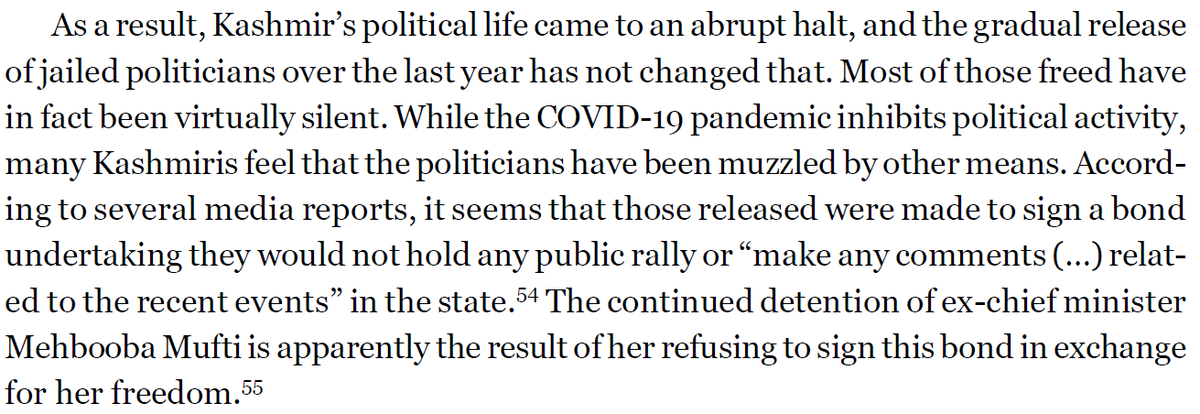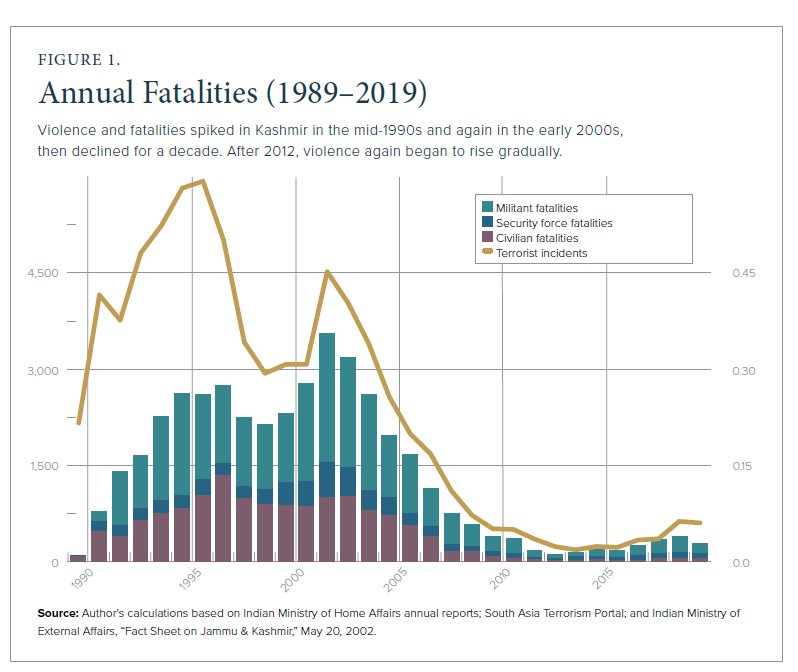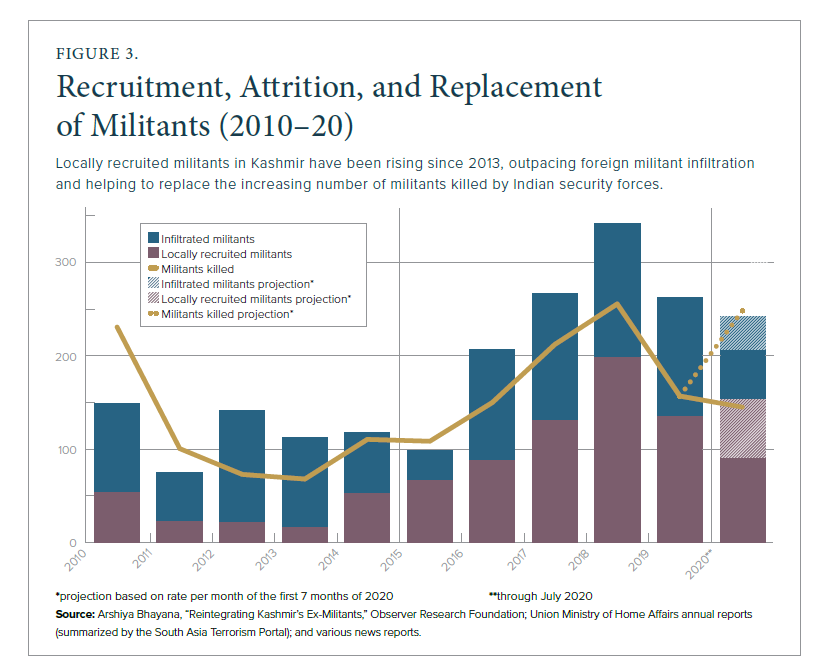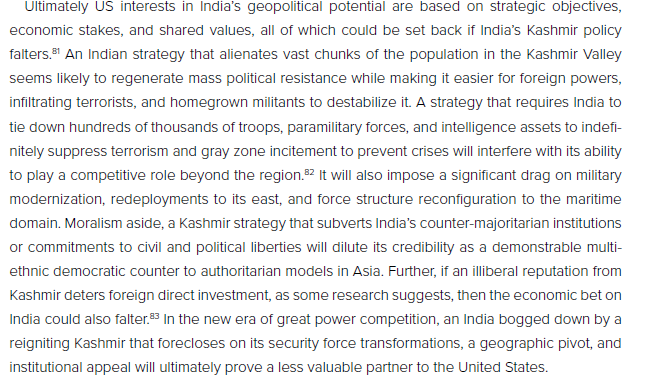[THREAD] Today, a year since the Indian government& #39;s removal of Kashmir& #39;s autonomy, I read three important reports on the politics surrounding Kashmir since the Indian government& #39;s decision. Some highlights from each. 1/n
. @CrisisGroup& #39;s report covers a lot of ground on the state of politics in Kashmir, effects on militancy, attempts at the reconfiguration of Kashmiri identity, and risk of regional conflict. https://www.crisisgroup.org/asia/south-asia/kashmir/310-raising-stakes-jammu-and-kashmir">https://www.crisisgroup.org/asia/sout...
On politics in Kashmir, it notes that the Indian crackdown over the last year has brought mainstream, pro-India politics to a halt. Significantly, there is disillusionment with the valley& #39;s separatists, who have been unable to show "any sign leadership."
On patterns of militancy and its drivers, the report notes that militancy in Kashmir continues to be "homegrown" and the foreign fighter component is marginal, and that it is driven by Indian counterinsurgency violence, religious beliefs, and broken politics of the region.
On politics of Pakistan-backed militancy, it notes that while mainstream politics remains divided, Pak-backed rival militant groups appear to be politically coordinating. For one, there are signs of a political alliance between Hizb-ul-Mujahideen and Lashkar-e-Taiba.
The report documents a number of measures to "disempowering" the natives of the Kashmir valley. In addition to new policies for residency and business for those from the "outside", the one which struck out is that the Indian government is pushing Hindi over the Urdu language.
On risks of conflict between India and Pakistan, in case of a major Pulwama-type attack -- with or without an established Pakistan connection -- serious conflict escalation is overdetermined.
. @splalwani & @GillianGayner have a report for @USIP documenting patterns of insurgency & non-lethal resistance in Kashmir: https://www.usip.org/publications/2020/08/indias-kashmir-conundrum-and-after-abrogation-article-370.">https://www.usip.org/publicati... @splalwani also has a @monkeycageblog piece with implications of the report& #39;s findings: https://www.washingtonpost.com/politics/2020/08/05/india-revoked-kashmirs-autonomy-year-ago-what-has-happened-since-then.">https://www.washingtonpost.com/politics/...
In the report, they show that incidents of lethal and non-lethal violence in Kashmir are very low since article 370& #39;s revocation. If you compare the violence to a decade back (shown in the figure on the left), it is really insignificant.
However, recruitment and replacement of militants despite high attrition has an, on balance, upward trajectory. They estimate that most the militants are locally recruited but the proportion of infiltrated militants is steadily rising.
Based on the above and more, they lay out the stakes of the situation in Kashmir for US foreign policy. Main takeaway: "In the new era of great power competition, an India bogged down by a reigniting Kashmir...will ultimately prove a less valuable partner to the United States."
. @HappymonJacob& #39;s report for @USIP focuses more on state strategies of India and Pakistan to deal with the aftermath of August 2019. https://www.usip.org/index.php/publications/2020/08/toward-kashmir-endgame-how-india-and-pakistan-could-negotiate-lasting-solution">https://www.usip.org/index.php...
On Indian strategy, he argues that the Indian government doesn& #39;t appear to have a clear plan to "stabilize" Kashmir. To the extent there is a strategy, it is focused on domestic management of Kashmir and not talking to Pakistan and Kashmiris leadership.
On Pakistan& #39;s strategy, he argues that the main thrust of Pakistani state effort is to "Kashmir-shame" India and enlist international support for it but the results are limited -- for example, the Gulf countries have abandoned Pakistan& #39;s Kashmir cause.
Over the medium-term, he argues that based on his interaction with several retired Pakistani military officers indications are that Pakistan will continue to provide material support to those fighting Indian forces in an attempt to force India& #39;s hand on negotiations.
The chances of talks are limited but if there is ever a return to talks he argues (like @praveenswami
recently) the format and content of the conversation maybe the same as the backchannel negotiations between Satinder Lamba and Tariq Aziz from 2004 to 2007.
recently) the format and content of the conversation maybe the same as the backchannel negotiations between Satinder Lamba and Tariq Aziz from 2004 to 2007.
That& #39;s that. [End of Thread] n/n

 Read on Twitter
Read on Twitter

















